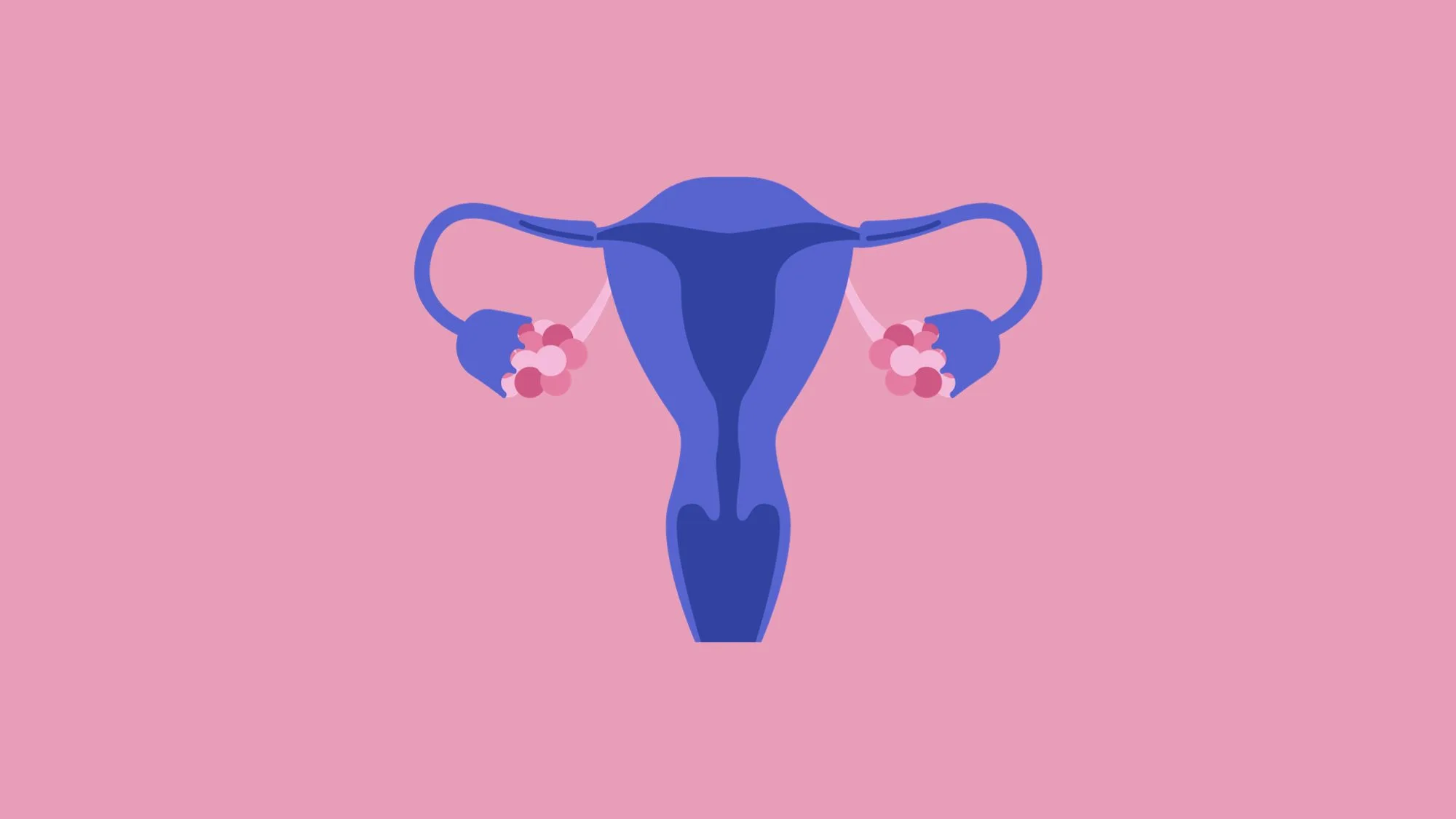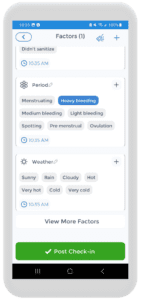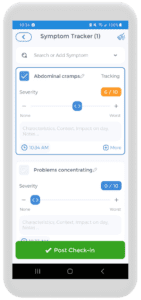
Polycystic Ovary Syndrome (PCOS) is a medical condition that affects many women worldwide. It is characterized by hormonal imbalances that cause the ovaries to develop numerous small cysts. This condition can lead to several symptoms, including irregular periods, weight gain, acne, and infertility. While there are several treatment options available for PCOS, some women may require surgical intervention, such as a hysterectomy. In this article, we will explore the benefits and risks of PCOS hysterectomy, as well as alternative treatments available for managing this condition.[1][2][3][4]
What is PCOS?
PCOS, or Polycystic Ovary Syndrome, is a medical condition that affects the hormonal balance in women’s bodies. It is a common endocrine disorder that affects between 5% and 10% of women of reproductive age. PCOS is a complex condition that can cause a range of symptoms and health problems, including infertility, metabolic disorders, and an increased risk of diabetes and heart disease.
Defining Polycystic Ovary Syndrome
Polycystic Ovary Syndrom is a condition that affects the ovaries, the reproductive organs responsible for producing eggs and hormones. In women with PCOS, the ovaries produce higher-than-normal levels of androgens, which are male hormones that are also found in women. This hormonal imbalance can cause the ovaries to develop numerous small cysts, which can interfere with the normal functioning of the ovaries and lead to a range of symptoms.
While the exact cause of PCOS is not known, it is believed to be related to a combination of genetic and environmental factors. Women with a family history of PCOS are more likely to develop the condition, as are those who are overweight or obese.
Common Symptoms and Diagnosis of Polycystic Ovary Syndrome
The symptoms of PCOS can vary from woman to woman, and not all women with PCOS will experience
- Irregular periods or no periods at all
- Heavy bleeding during periods
- Excessive hair growth on the face, chest, or back
- Acne or oily skin
- Weight gain or difficulty losing weight
- Infertility or difficulty getting pregnant
Diagnosing PCOS can be challenging, as there is no single test that can definitively diagnose the condition. Instead, doctors will typically perform a combination of blood tests, pelvic exams, and ultrasounds to evaluate hormone levels, check for ovarian cysts or abnormalities, and evaluate the ovaries’ shape and size.
If you suspect that you may have PCOS, it is important to talk to your doctor. Early diagnosis and treatment can help manage symptoms and reduce the risk of long-term serious health issues and problems associated with the condition.[5][6][7][8]
Hysterectomy as a Treatment Option for Polycystic Ovary Syndrome
Polycystic Ovary Syndrome (PCOS) is a common hormonal disorder that affects women of reproductive age. It is characterized by the presence of multiple small cysts on the ovaries, irregular periods, and high levels of androgens (male sex hormones) in the body. While PCOS can be treated with medications and lifestyle changes, some women may require surgical intervention such as a hysterectomy.
Hysterectomy is a surgical procedure in which the uterus is removed. This procedure may be recommended for women who have severe PCOS symptoms that are not responsive to other treatments. The decision to undergo a hysterectomy should be made in consultation with a healthcare provider and should be based on the individual patient’s needs and medical history.
Types of Hysterectomy Procedures
There are different types of hysterectomy procedures available. Total hysterectomy involves the removal of the uterus and cervix. Partial hysterectomy involves the removal of the uterus and leaves the cervix intact. Radical hysterectomy involves the removal of the uterus, cervix, and the upper part of the vagina. The type of hysterectomy performed depends on the patient’s condition and needs, as determined by their healthcare provider.
In addition to the type of hysterectomy, the method of surgery may also vary. Hysterectomy can be performed using traditional open surgery, laparoscopic surgery, or robotic-assisted surgery. Each method has its own advantages and disadvantages, and the choice of method will depend on the patient’s condition and the surgeon’s experience.
When is Hysterectomy Recommended for Polycystic Ovary Syndrome?
Hysterectomy may be recommended for PCOS patients with severe symptoms that do not respond to other treatments. Women who experience chronic pelvic pain, heavy or prolonged menstrual bleeding, or difficulty conceiving may benefit from this procedure. However, it is important to discuss the risks and benefits of hysterectomy with your healthcare provider before making a decision.
One of the potential benefits of hysterectomy for PCOS patients is the reduction or elimination of menstrual bleeding. This can be particularly beneficial for women who experience heavy bleeding or prolonged periods, which can be both physically and emotionally draining. Hysterectomy can also alleviate chronic pelvic pain, which can be a symptom of PCOS as well as other gynecological conditions.
However, it is important to note that hysterectomy is a major surgery and carries risks such as infection, bleeding, and damage to surrounding organs. It also involves the permanent removal of the uterus, which means that women who undergo hysterectomy will no longer be able to conceive naturally. For women who wish to have children in the future, other treatment options may be more appropriate.
In conclusion, hysterectomy may be a viable treatment option for women with PCOS who have severe symptoms that do not respond to other treatments. However, the decision to undergo hysterectomy should be made in consultation with a healthcare provider and should take into account the patient’s individual needs and medical history.
Benefits of PCOS Hysterectomy
Hysterectomy can provide several benefits for women with PCOS, including relief from chronic pain, a reduced risk of ovarian cancer, and improved quality of life. However, before making a decision to undergo this procedure, it is important to understand the potential risks and side effects.
Relief from Chronic Pain

Reduced Risk of Ovarian Cancer
Women with PCOS have an increased risk of ovarian cancer due to the presence of ovarian cysts. While not all ovarian cysts are cancerous, the risk is still present. Removing the uterus can decrease this risk, as the ovaries are often removed along with the uterus during a hysterectomy.
Improved Quality of Life
Women who undergo hysterectomy for PCOS often report improvements in their quality of life. In addition to the relief from chronic pain, women may also experience a decrease in other PCOS symptoms such as irregular periods, heavy bleeding, and hormonal imbalances. This can lead to increased mobility and activity levels, as well as improved mental health and overall well-being.
It is important to note that while hysterectomy can provide relief from PCOS symptoms, it is not a cure for the condition. Women may still experience some symptoms, such as acne or excess hair growth, even after the procedure. Additionally, there are potential risks and side effects associated with hysterectomy, including infection, bleeding, and damage to surrounding organs.
Before deciding on hysterectomy as a treatment option, it is important to discuss the potential risks and benefits with a healthcare provider. They can help determine if hysterectomy is the best choice for an individual’s specific situation and provide guidance on post-operative care and recovery.[9][10][11][12][13]
Risks and Complications of PCOS Hysterectomy
Polycystic Ovary Syndrome (PCOS) is a common hormonal disorder that affects many women of reproductive age. In some cases, a hysterectomy may be recommended as a treatment option for PCOS. While this procedure can be effective in managing symptoms, it is important to understand the potential risks and complications.
As with any surgical procedure, there are risks and potential complications associated with PCOS hysterectomy. These can include surgical risks, hormonal imbalance, and emotional and psychological effects.
Surgical Risks
The risks associated with surgery include bleeding, infection, and anesthesia complications. While these risks are generally low, they can still occur and should be taken seriously. In addition, there is also a risk of injury to the bladder, bowel, or other nearby organs during surgery. This risk can be minimized by choosing an experienced and skilled surgeon.
Hormonal Imbalance and Menopause
Removing the uterus can cause hormonal imbalances that can lead to menopausal symptoms such as hot flashes, decreased libido, and vaginal dryness. Hormone therapy may be necessary to manage these and other symptoms. It is important to discuss the potential risks and benefits of hormone therapy with your healthcare provider.
It is also important to note that while a hysterectomy can improve PCOS symptoms, it does not cure the underlying hormonal imbalance. Women who have had a hysterectomy may still need to manage their PCOS symptoms through other means, such as medication or lifestyle changes.
Emotional and Psychological Effects
Hysterectomy can have emotional and psychological effects on patients. Women may experience feelings of grief, loss, and anxiety due to the loss of reproductive ability. In addition, some women may feel a sense of relief or freedom from the burden of PCOS symptoms. Counseling and support may be necessary to manage these emotions and to help women adjust to life after surgery.
Overall, while PCOS hysterectomy can be an effective treatment option for some women, it is important to carefully consider the potential risks and complications before making a decision. Women should discuss their options with their healthcare provider and weigh the potential benefits and drawbacks of each treatment option.[14][15][16][17]
Alternatives to Hysterectomy for PCOS Management
Polycystic Ovary Syndrome (PCOS) is a hormonal disorder that affects many women of reproductive age. It can cause a variety of symptoms, including irregular periods, acne, weight gain, and excess hair growth. While hysterectomy is a viable treatment option for women with PCOS, there are several non-surgical alternatives available for managing this condition.
Lifestyle Changes and Weight Management
Lifestyle changes such as diet and exercise can improve PCOS symptoms. Maintaining a healthy weight can also help regulate hormone levels and improve menstrual cycles. A healthy diet that includes plenty of fruits, vegetables, and whole grains can help regulate blood sugar levels and reduce insulin resistance, which is often associated with PCOS. Exercise can also help reduce insulin resistance and improve weight management. Yoga and other forms of relaxation techniques can help reduce stress levels, which can also have a positive impact on PCOS symptoms.
Hormonal Therapy
Birth control pills and other hormonal therapies can regulate menstrual cycles and reduce acne and facial hair growth associated with PCOS. Hormonal therapy works by regulating the levels of estrogen and progesterone in the body, which can help reduce the symptoms of PCOS. However, it is important to note that hormonal therapy may not be suitable for all women with PCOS. Women with a history of blood clots, stroke, or breast cancer may not be able to take hormonal therapy.
Fertility Treatments
Women with PCOS who experience infertility may benefit from fertility treatments such as in vitro fertilization (IVF), ovulation induction, and intrauterine insemination (IUI). These treatments can help regulate ovulation and improve the chances of getting pregnant. IVF involves fertilizing an egg outside the body and then implanting it into the uterus. Ovulation induction involves taking medication to stimulate ovulation, while IUI involves placing sperm directly into the uterus to increase the chances of fertilization.
In conclusion, while hysterectomy may be an option for some women with PCOS, there are several non-surgical alternatives available for managing this condition. Lifestyle changes, hormonal therapy, and fertility treatments can all help reduce the symptoms of PCOS and improve overall quality of life.[18][19]
Making an Informed Decision
If you are considering PCOS hysterectomy or other treatment options, it is essential to discuss your options with your healthcare provider. Polycystic ovary syndrome (PCOS) is a hormonal disorder that affects women of reproductive age. It is characterized by the presence of multiple cysts in the ovaries, which can cause irregular periods, infertility, and other complications. PCOS hysterectomy is a surgical procedure that involves the removal of the uterus in women with severe symptoms or complications.
Discussing Options with Your Healthcare Provider
It is important to have an open and honest conversation with your healthcare provider about your symptoms, treatment options, and potential risks and benefits. Your healthcare provider can help guide you towards an informed decision. They may recommend other treatment options, such as hormonal therapy, lifestyle changes, or fertility treatments, depending on your individual case.
During your consultation, your healthcare provider may also discuss the potential risks and benefits of PCOS hysterectomy. While this procedure can provide relief for some women with severe symptoms, it is not without risks. Complications can include bleeding, infection, and damage to surrounding organs.
Weighing the Pros and Cons
Consider the potential risks and benefits of each treatment option before making a decision. PCOS hysterectomy may be a good option for women who have not responded to other treatments or who have severe symptoms that affect their quality of life. However, it may not be the best choice for other women, who want to preserve their fertility or who have mild symptoms that can be managed with other treatments.
It is also important to consider your age, overall health, and personal preferences when evaluating your options. If you are nearing menopause, for example, PCOS hysterectomy may not be necessary, as your symptoms may improve naturally as your hormone levels change.
Preparing for Surgery and Recovery
If you decide to undergo PCOS hysterectomy, it is essential to follow your healthcare provider’s
After surgery, you will need to take time off from work and other activities to allow enough recovery time for your body to heal. You may experience pain, discomfort, and fatigue during this time, and you will need to follow your healthcare provider’s instructions for post-operative care, such as avoiding heavy lifting or strenuous exercise.
In conclusion, PCOS hysterectomy is a treatment option for women with severe symptoms or complications of PCOS. However, it is important to discuss your options with your healthcare provider and weigh the potential risks and benefits before making a decision. With the right preparation and care, you can make a successful recovery and improve your quality of life.[20][21]
Using the CareClinic App to Help Cure PCOS
People with PCOS diagnosed may find the CareClinic App beneficial. The app can act as your personal health journal, where you can track your symptoms. Whether you experience cardiovascular disease, chest pain, urinary incontinence, bone loss, hair loss, high cholesterol, obesity, or diabetes you can write down these symptoms as they occur and the app will create charts to visualize this information. This information will also be handy next time you visit your doctor or want a second opinion from someone else.
PCOS is a common medical condition that affects women’s hormonal balance and can lead to several symptoms. While hysterectomy is a viable treatment option for some women with severe symptoms, it is important to consider the potential risks and benefits before making a decision. There are several non-surgical alternatives available for managing PCOS, and your healthcare provider can help you make an informed decision based on your individual needs and overall health.
Sources:
- https://www.hopkinsmedicine.org/health/conditions-and-diseases/polycystic-ovary-syndrome-pcos
- https://www.mayoclinic.org/diseases-conditions/pcos/symptoms-causes/syc-20353439
- https://www.cdc.gov/diabetes/basics/pcos.html
References
- “What are the treatments for PCOS? | NICHD – Eunice Kennedy Shriver National Institute of Child Health and Human Development”. https://www.nichd.nih.gov/health/topics/pcos/conditioninfo/treatments
- “Ovarian drilling”. https://en.wikipedia.org/wiki/Ovarian_drilling
- “Alternative Treatments | Hysterectomy Surgery”. https://www.hysterectomy.com/hysterectomy-alternative-treatments
- “Explore Non-Surgical Treatments For Hysterectomy”. https://womens-healthcare.co.uk/non-surgical-alternatives-to-hysterectomy/
- “Polycystic Ovary Syndrome (PCOS) | Johns Hopkins Medicine”. https://www.hopkinsmedicine.org/health/conditions-and-diseases/polycystic-ovary-syndrome-pcos
- “PCOS | Polycystic Ovary Syndrome | MedlinePlus”. https://medlineplus.gov/polycysticovarysyndrome.html
- “What are the symptoms of PCOS? | NICHD – Eunice Kennedy Shriver National Institute of Child Health and Human Development”. https://www.nichd.nih.gov/health/topics/pcos/conditioninfo/symptoms
- “Polycystic ovary syndrome (PCOS) – Diagnosis and treatment – Mayo Clinic”. https://www.akamai.mayoclinic.org/diseases-conditions/pcos/diagnosis-treatment/drc-20353443
- “PCOS and Hysterectomy | Hysterectomy”. https://www.hysterectomy.org/2022/02/16/48461/
- “Risk of endometrial cancer in patients with polycystic ovarian syndrome: A meta‑analysis – PMC”. https://www.ncbi.nlm.nih.gov/pmc/articles/PMC10028221/
- “Polycystic ovary syndrome and the risk of endometrial, ovarian and breast cancer: An updated meta-analysis”. https://pubmed.ncbi.nlm.nih.gov/35686317/
- “Hysterectomy for PCOS | myPCOSteam”. https://www.mypcosteam.com/treatments/hysterectomy
- “Hysterectomy for PCOS: A Comprehensive Guide | PCOS Meal Planner”. https://app.pcosmealplanner.com/knowledge-articles/any/hysterectomy-for-pcos
- “Hysterectomy”. https://en.wikipedia.org/wiki/Hysterectomy
- “Managing PCOS After Hysterectomy: Effective Treatments and Lifestyle Changes | Harmony Wellness Blog”. https://www.harmonywellness.net/posts/managing-pcos-after-hysterectomy-effective-treatments-lifestyle-changes
- “Hysterectomies Are Associated with an Increased Risk of Depression: A Population-Based Cohort Study – PMC”. https://pmc.ncbi.nlm.nih.gov/articles/PMC6210125/
- “How are Women Emotionally Affected After a Hysterectomy?”. https://www.news-medical.net/health/How-are-Women-Emotionally-Affected-After-a-Hysterectomy.aspx
- “Infertility management in women with polycystic ovary syndrome: a review – PMC”. https://pmc.ncbi.nlm.nih.gov/articles/PMC7846416/
- “Treatments for Infertility Resulting from PCOS | NICHD – Eunice Kennedy Shriver National Institute of Child Health and Human Development”. https://www.nichd.nih.gov/health/topics/pcos/conditioninfo/treatments/infertility
- “Pros and Cons of Hysterectomy for PCOS”. https://pcosnest.com/pros-and-cons-of-hysterectomy-for-pcos/
- “Hysterectomy for PCOS: Pros, Cons & Hidden Dangers”. https://www.treatmentinprogress.com/post/hysterectomy-for-pcos
- “Hysterectomy for PCOS: Is It a Viable Option? – Women's Health Associates”. https://womenshealthboise.com/hysterectomy-for-pcos-is-it-a-viable-option/
- “Polycystic Ovarian Syndrome (PCOS): Renee Cotter, MD: Gynecologists”. https://www.reneecottermd.com/blog/polycystic-ovarian-syndrome-pcos


